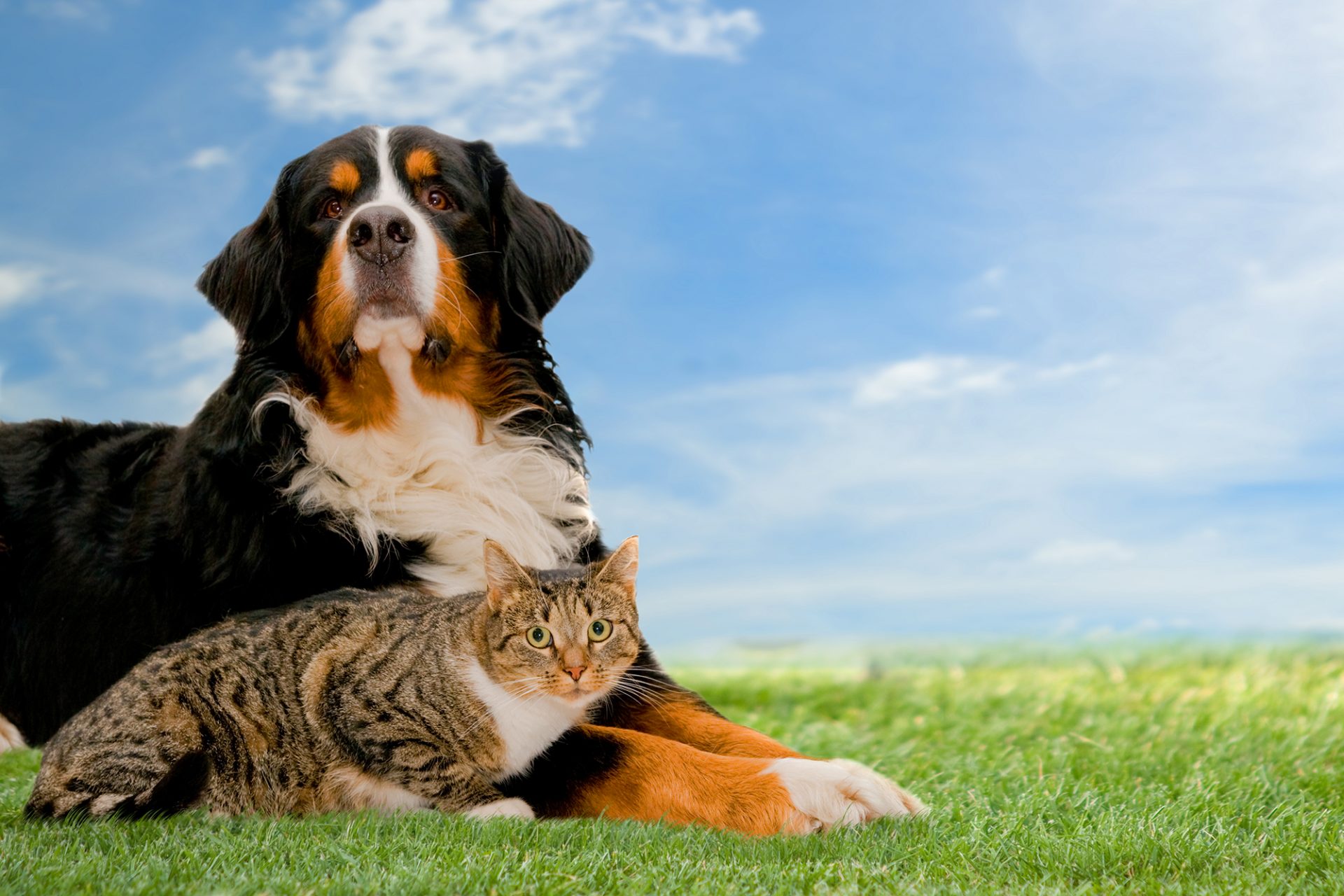They pick us up when we’re feeling down. They always make us feel loved. They don’t judge us. Our pets are a part of our family. So when we see our furry friends suffering or in pain, we want to do whatever we can to get them relief. But can medical cannabis, specifically CBD, help treat our beloved fur babies? Yes. It can. Over the last several years CBD has been gaining popularity not only for treating conditions in humans but also for treating our pets as well.
All mammals have an endocannabinoid system, and this includes cats, dogs, and even horses. Just like with humans, this system is made up of receptors located throughout the animal’s body, and these receptors control many vital functions including mood, pain, sleep, appetite, and immunity. It’s goal is to keep balance, or homeostasis, in the body. Because of this, adding a CBD regimen to your pet’s daily routine could provide some great results.
NO THC!
Before I go on, this is the most important take home message for pet lovers: Do NOT ever give active THC (or a cannabis product with more than .3% THC) to an animal. According to veterinarian, Dr. Iris Ramirez of Pet Wellness Center in Fort Myers, “dogs are more sensitive to it than even cats are. They have hundreds of times more THC receptors in their nervous system than we do and when given THC they can have something called ‘static ataxia: This means that they cannot figure out how to handle their body or where it is in space and time. They will just stand there confused and perhaps frightened, but looking “stoned” to the human.
She goes on to further explain, “It has got to be a most unpleasant disquieting experience for the poor creatures. They often end up in the emergency room with disorientation, respiratory depression, dangerous changes in blood pressure, even seizures and coma, and if they ingest enough, they can die.”
However, cats and dogs have no issue with CBD and it is 100% safe to give it to them. This includes full spectrum CBD (CBD with less than .3% THC). In fact, because they have so many more receptors than we do, they tend to have even better results with CBD. And that’s great news for pets!
What can CBD help treat?
Similarly to humans, pets can find relief for a multitude of maladies including:
Anxiety
Does your dog dive under the bed with the first clap of thunder preceding one of our summer storms? Does she freak out when strangers come over? Do your neighbors complain that your dog barks incessantly when you’re not home? All of these anxiety issues can be easily treated with CBD oil.
Seizures
We all know how well CBD treats seizure disorders in humans, and it works just as well for animals. If your dog suffers from seizures or is on seizure medication that is compromising other aspects of his health, CBD is a great natural option.
Nausea
Going on a trip and want to take your cat? Car sickness is just as real in animals as it is in humans. Before hitting the road, CBD may just make travelling with Fido a little easier.
Pain/Inflammation
As pets age, they get just as many problems as we do. If your cat or dog is getting older and arthritis is setting in, CBD is a great way to get them moving again. It’s also great for large breed dogs who oftentimes suffer from hip dysplasia.
Appetite
When we don’t feel well, we don’t want to eat. Our pets react the same way. Adding CBD to their health plan can help them regain their appetite, which nourishes their body and helps heal it.
Pet owners also report that their pets tend to have more energy after adding CBD to their daily routines. A 12-year-old dog acts like a five-year-old puppy again, running, jumping, and playing like he hasn’t done in years. But most of all, CBD provides quality of life. As our pets age, it is always difficult to make the decision that it is “the time” to say goodbye. If CBD can help the pet gain a few more quality months or even years, then it is definitely a viable treatment option.
CBD Dosing for Pets
There are a lot of CBD products on the market, so which one should you select for your pet? And, more importantly, how much do you give them?
First of all, your pet cannot overdose on CBD. The worst side effect is sleep, so don’t be alarmed if your dog or cat curls up in their favorite spot and snoozes for an hour or two or six. This is not uncommon, nor is it a bad thing. If your pet is sleeping excessively after a CBD dose, you may want to decrease the amount you are giving them. Remember, we want to fid the minimum dosage that yields the maximum benefits … just like for humans.
Even though CBD for pets is exactly the same as CBD for humans (except for some flavoring usually), you can get CBD made specifically for animals. Usually it comes in a weaker strength (150mg or 200mg as opposed to 500mg or 1000mg). This is fine since they require a lot less CBD than we do. If you have a 150mg-200mg bottle, you would want to give your pet approximately 2-3 drops (not dropperfuls) of CBD oil per ten pounds, two to three times per day. So if your dog weighs 14 pounds, you would give him 3-4 drops. If your dog weighs 85 pounds (big dog!) she would get around 20 drops (one dropperful). At this point, it might be more beneficial to switch to a “human” CBD product since a 500mg bottle will yield many more doses.
Administering CBD to your Pet
So you found an oil that you want to give your pet … how do you get them to take it? If it is a full spectrum oil, chances are that it will taste pretty bad. You can administer the oil by mixing it in with their food or by applying it on a treat. You can also administer it directly into the mouth with the dropper that came with the oil.
Because the CBD has to go through the intestinal tract, results are usually not immediate (except with seizures and anxiety), but your pet should feel some relief within a half hour or so, although it may take longer. You may also find that you see more changes around the third of fourth day of treatment. But, just like humans, every pet is different and their requirements and results are as individual as they are.
Keeping a Pet Journal
We make it a point to educate our readers on the benefits of keeping a journal to track your cannabis journey. You may want to consider doing the same for your pet. Simply write down the symptoms, dose, pain level, etc. This information could be valuable to share with your vet. Need a little help setting up your pet journal? Check out our “human” version here which can easily be modified for your furry friend.





